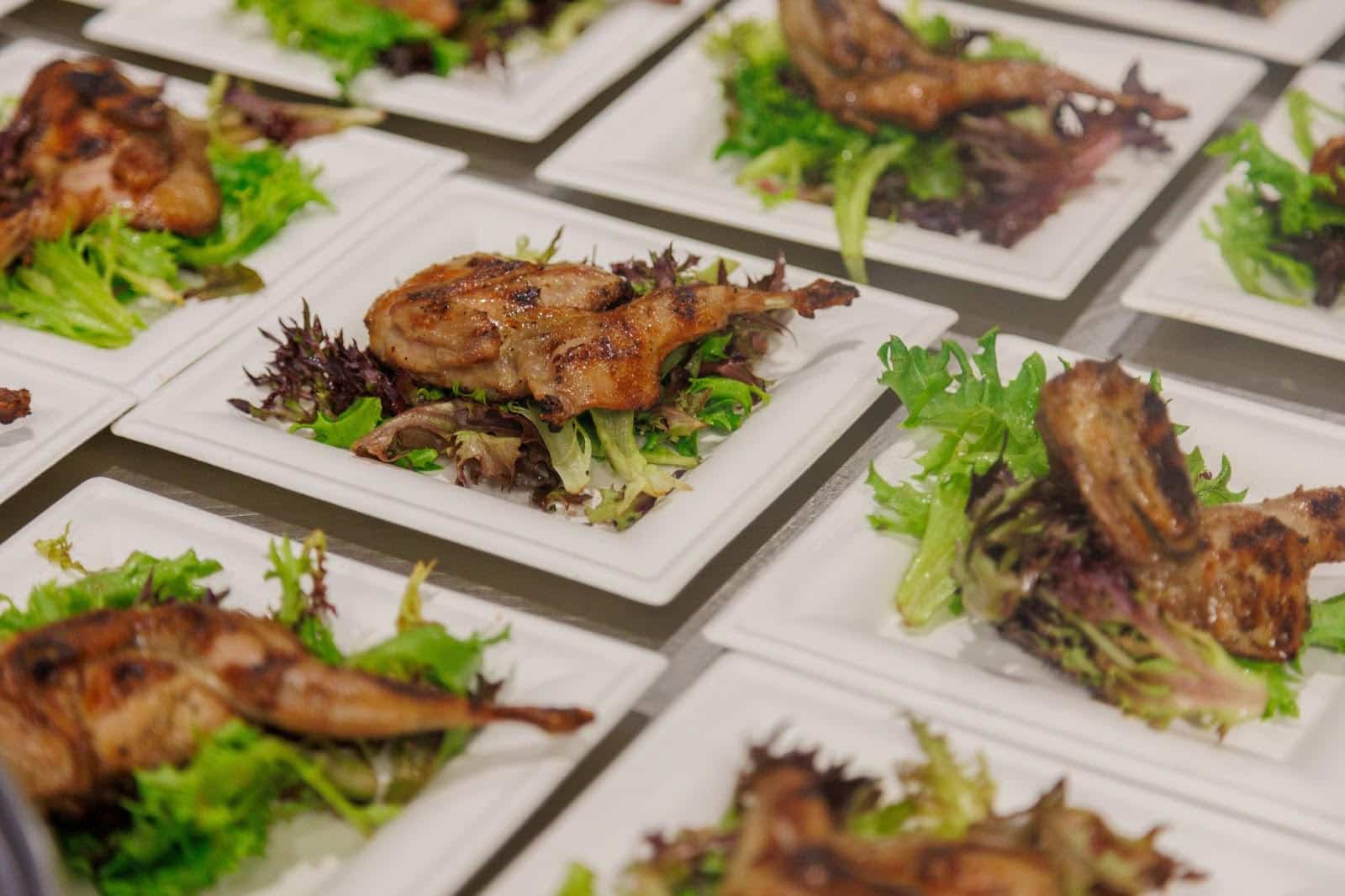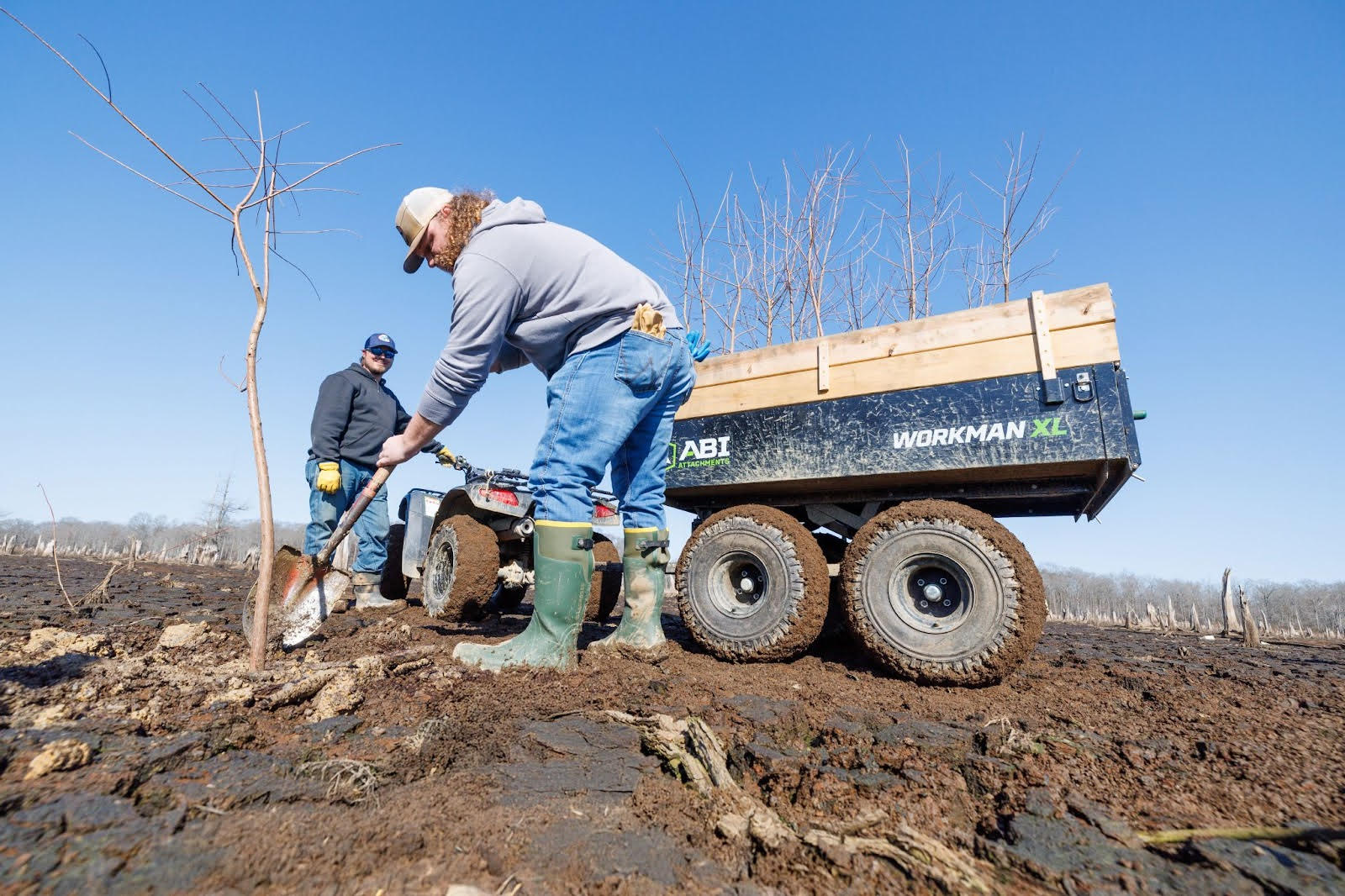Biologists band together to monitor Arkansas’s Canada goose population
BY Levi Horrell
ON 08-02-2023
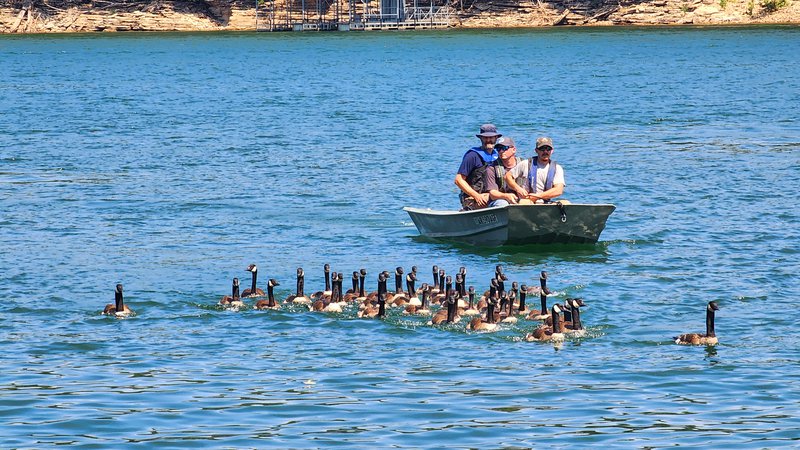
Aug. 2, 2023
Levi Horrell
Northwest Arkansas Assistant Regional Manager, Wildlife Management
ROGERS — Arkansas Game and Fish Commission biologists teamed up in late June with several partners in northwest Arkansas, including the Army Corps of Engineers, Beaver Watershed Alliance and Northwest Arkansas Land Trust to herd and band roughly 280 Canada geese that had taken up residence on Beaver Lake.
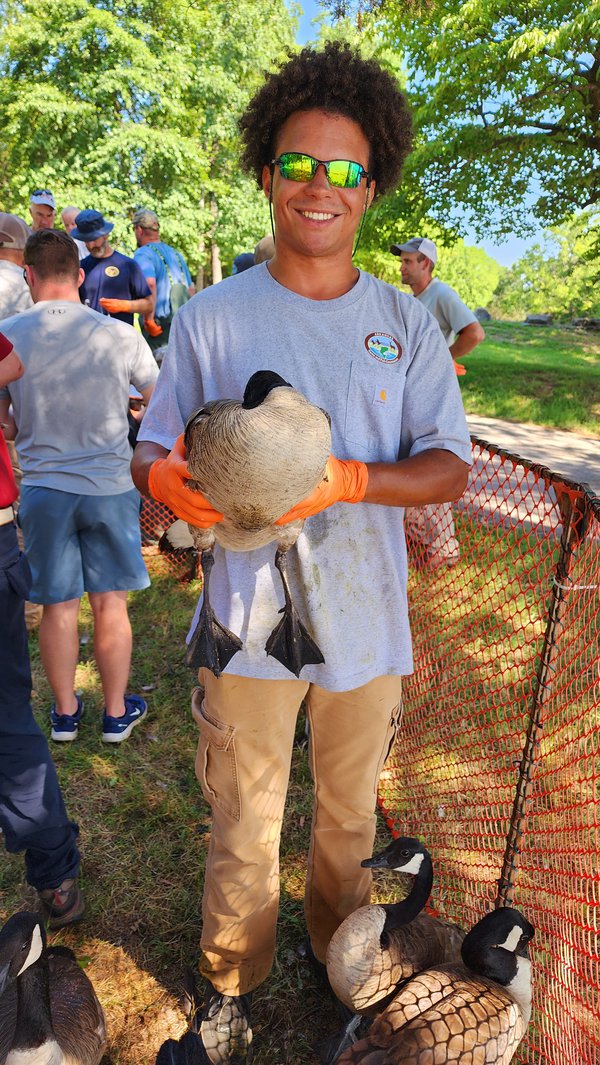
Statewide, biologists banded 1,300 Canada geese during the last few weeks, when waterfowl and waterfowl hunting rarely crosses anyone’s mind. The timing of the effort revolves around science and not summer vacations. Each year around late June and early July, something unusual happens to Arkansas’s resident Canada geese. They begin to molt, or shed, their primary flight feathers so they can regrow and be in top condition during fall. This renders them flightless for a few weeks until their new primaries fully develop.
Biologists from the AGFC and other agencies use the lack of flight to their advantage in accomplishing banding goals. Geese can be found and, if the area is suitable, herded into pens that safely allow biologists to capture them for a few brief moments. A single, small aluminum band with a unique identification number is applied to the leg of each goose. Similar to a small bracelet, the band fits somewhat loosely around the bird’s ankle and causes no harm.
Data regarding each goose’s age, sex, if they attempted to nest that year, and whether they have been captured before are recorded for each band number. Age lets biologists estimate the number of juveniles raised that year. Sex provides an idea of the local population’s breeding potential and possible speed of population growth. Recapture data can provide additional information on age and movement across the landscape. When multiple years of this data collection are combined, it can become increasingly valuable in answering questions about the goose population.
Time will tell where these newly banded geese go. If you are a hunter lucky enough to harvest a banded bird this goose season, please report the band at www.reportband.gov. This provides additional data to help biologists at the AGFC and throughout the world. Information about your bird also will be provided to you, so you can appreciate some of the amazing life history of waterfowl and other migratory game birds.
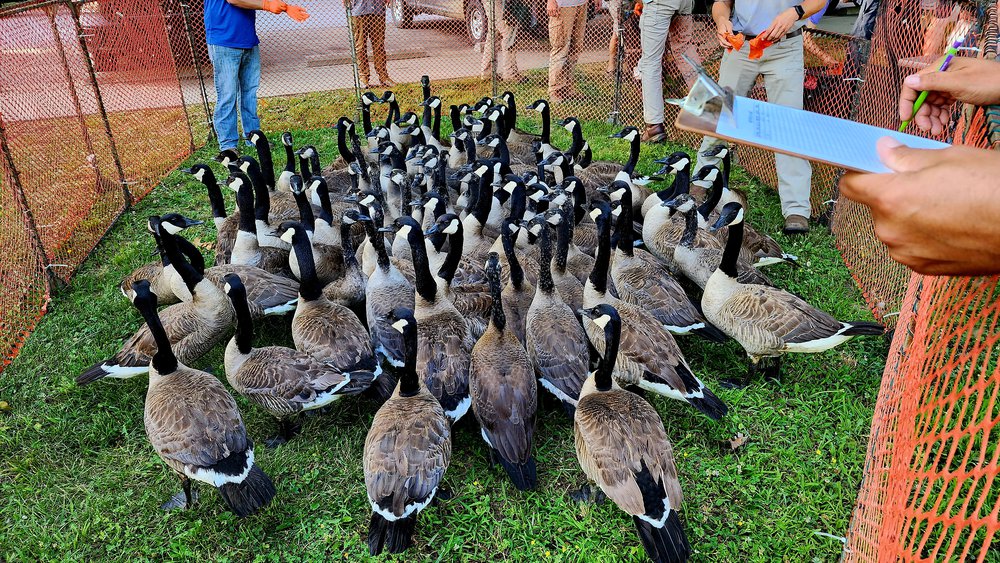
CUTLINES:
BOAT AND GEESE
Biologists use boats to herd Canada geese to shore where other staff are ready with corrals to temporarily hold the flightless birds.
MAN WITH GOOSE
Blake Coulter, part-time technician for the AGFC, holds a captured goose with its head tucked beneath its wing. This technique relaxes the bird and reduces stress before banding.
GEESE IN PEN
Temporary corrals made with snow fencing hold geese until they’ve been banded and data has been collected.
Recent News
Subscribe to Our Weekly Newsletter E-mails
Don’t miss another issue. Sign up now to receive the AGFC Wildlife Weekly Newsletter in your mailbox every Wednesday afternoon (Waterfowl Reports are published weekly during waterfowl season and periodically outside the season). Fishing Reports arrive on Thursdays. Fill in the following fields and hit submit. Thanks, and welcome!

